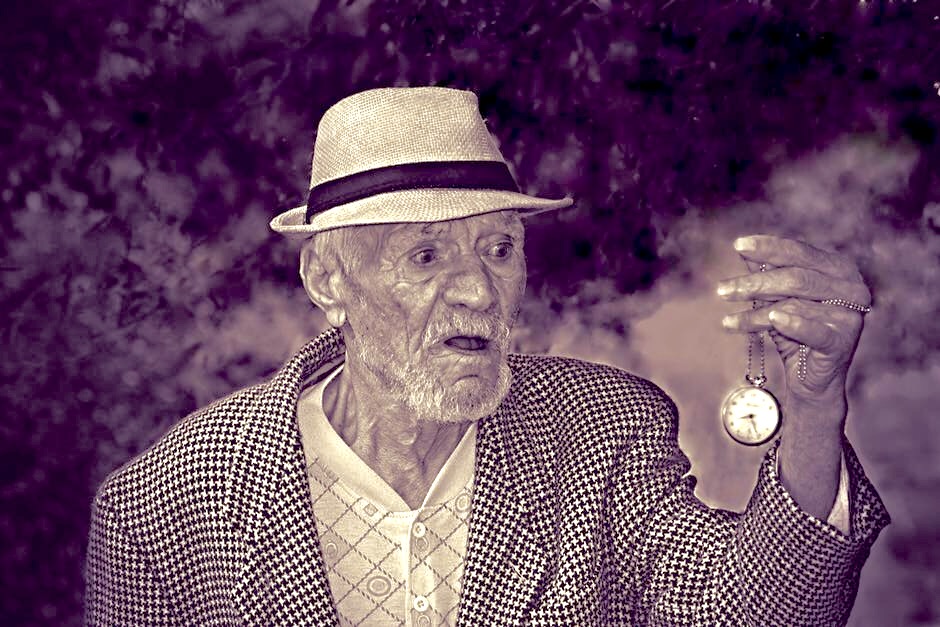When I was a young woman working in a nursing home, one of the most disturbing things – worse than the feebleness of the residents, or the smell, or the fact that even a self-absorbed twenty-four year old couldn’t really ignore mortality in that environment – was how many folks told me that they didn’t know where their lives had gone.
How could they let that happen? I wondered, with the arrogance of youth. Now I understand. We miss our lives because we don’t fully inhabit them. Instead, our days blur together. All too often we’re just doing time, imprisoned by expectations, regrets, plans, memories, and constant evaluation of the world around us and our place in it. But something else is going on too, something those nursing home residents were feeling: a deeper wisdom within us that keeps reminding us we’re missing something.
We all sense that wisdom from time to time. We know that it’s possible to live more fully, wholeheartedly and genuinely than most of us usually manage. That sense is confirmed by occasional fleeting moments of experience, moments that feel like serendipity or grace. Such moments can even come, paradoxically, in the midst of the most dreadful situations. And although these moments occur randomly, seeming to just happen from time to time, they show us what’s possible.
It might be when we step out of the shower and stand still for a few seconds feeling clean and refreshed. Or perhaps we open the blinds just as the sunlight catches the trees in a certain way that makes us pause, or our mother’s smile transports us back to childhood at the same time as her wrinkles pierce us with the hard fact of impermanence. The shock of a sudden death may jolt us into a more vivid world. Whatever the content of such a moment – good or bad, happy or sad – it stops us. We sense what it is to be alive, and profound gratitude arises.
Before we start thinking, “I’m running a little late,” before we jump in the car and take off for our next bit of business, before anything else happens, we just stop – captured by the look on a child’s face or the sound of the church bells or the taste of honey on toast. For just a moment, there is reality. There it is, the essence of life, in that moment, and we know it.
And then we try to hold on to it. Such moments tend to occur infrequently and at random, but we want them to last. When they don’t, we struggle to recreate them. However they can’t be forced; that fresh immediacy happens only spontaneously, when the speediness of our minds and the pressures of our daily agendas fall away, however briefly, interrupted by our full attention to the direct experience of the moment, rather than to what we think about it.
Because you can’t believe everything you think. One of the first things we learn when we start practicing mindfulness is that although we’re used to assuming that what arises in our minds accurately represents reality, when we pay attention to our inner process as we do when we meditate, a challenging insight arises: our thoughts can’t always be trusted. They are fickle and change depending on our moods, external circumstances, or who knows what. Thus, what we think about things around us, or even within us, isn’t necessarily reliable.
At first, this realization can arouse fear. We may react to it with the desire to hunker down, to solidify our opinions and try to pin down even more definitively what’s happening and how we feel and what we think about it. But if we keep practicing, eventually we begin to notice that behind all that changing content that arises in our minds is something reliable and ever present, a kind of inner space which we can learn to recognize and rest in, like the sky in which our changeable inner weather occurs. This is the space mindful leaders learn to trust.
We find the space to lead whenever we interrupt the momentum of the habitual reactivity that arises out of our conditioning. If we had an argument with a co-worker at our last meeting, when he sends an email wanting to meet again, we might notice our stomach clenching up in anxious anticipation. That noticing creates the space in which we can recognize the reaction and remind ourselves to be open to fresh possibilities with that person. And even if he does come trailing clouds of contentiousness, we can allow them to dissipate in the space of a purposeful pause.
Within that space we can fully inhabit each moment of our lives. Then, regardless of where we find ourselves – even if, eventually, that turns out to be a nursing home – we won’t find ourselves wondering where our lives have gone. We’ll know.
Learn more about how mindful leadership practices can strengthen your innate ability to live and lead with focus, clarity, creativity and compassion- The Institute for Mindful Leadership offers custom and open workshops for leaders all over the world. Our upcoming offerings can be found on our Retreats and Workshops listings.

